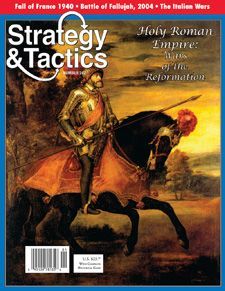Holy Roman Empire: Wars of the Reformation, 1524-38 (2007) Board Game
Holy Roman Empire: Wars of the Reformation, 1524-38 is a board game that explores the religious conflicts and power struggles that took place during the Reformation period in the Holy Roman Empire. Players take on the roles of different factions vying for control and influence in this tumultuous time.
Game Components of Holy Roman Empire: Wars of the Reformation, 1524-38
How To Setup Holy Roman Empire: Wars of the Reformation, 1524-38
To set up the game, players first need to distribute the game components according to their respective factions. Each player selects their starting units and places them on the board as indicated by the rules. The game board is laid out to represent the European landscape during the Reformation period. Players then determine the starting player through the Initiative Determination Phase. No specific video setup guide is available, but the rulebook provides detailed instructions for initial setup.
Gameplay Mechanics and Game Objective
Player Experience
Playing **Holy Roman Empire: Wars of the Reformation, 1524-38** involves a deep dive into historical strategy and diplomacy. Players must navigate complex game phases, manage resources, and engage in both military and political maneuvers. The game supports 2-4 players, each representing a major power, making it a dynamic and interactive experience that requires strategic thinking and adaptability.
Pros
Cons
Personal Thoughts on Holy Roman Empire: Wars of the Reformation, 1524-38
This game is ideal for enthusiasts of historical wargames and those who appreciate complex strategic gameplay. It is particularly suited for players interested in the Reformation period and the intricacies of European politics and warfare during that time. However, due to its complexity, it may not be the best fit for casual gamers or those new to wargaming.
We are supported by our audience. When you purchase through links on our site, we may earn an affiliate commission, at no extra cost for you. Learn more.

